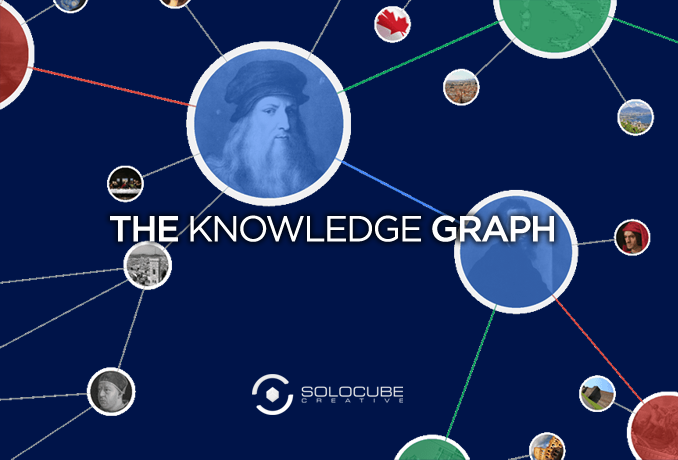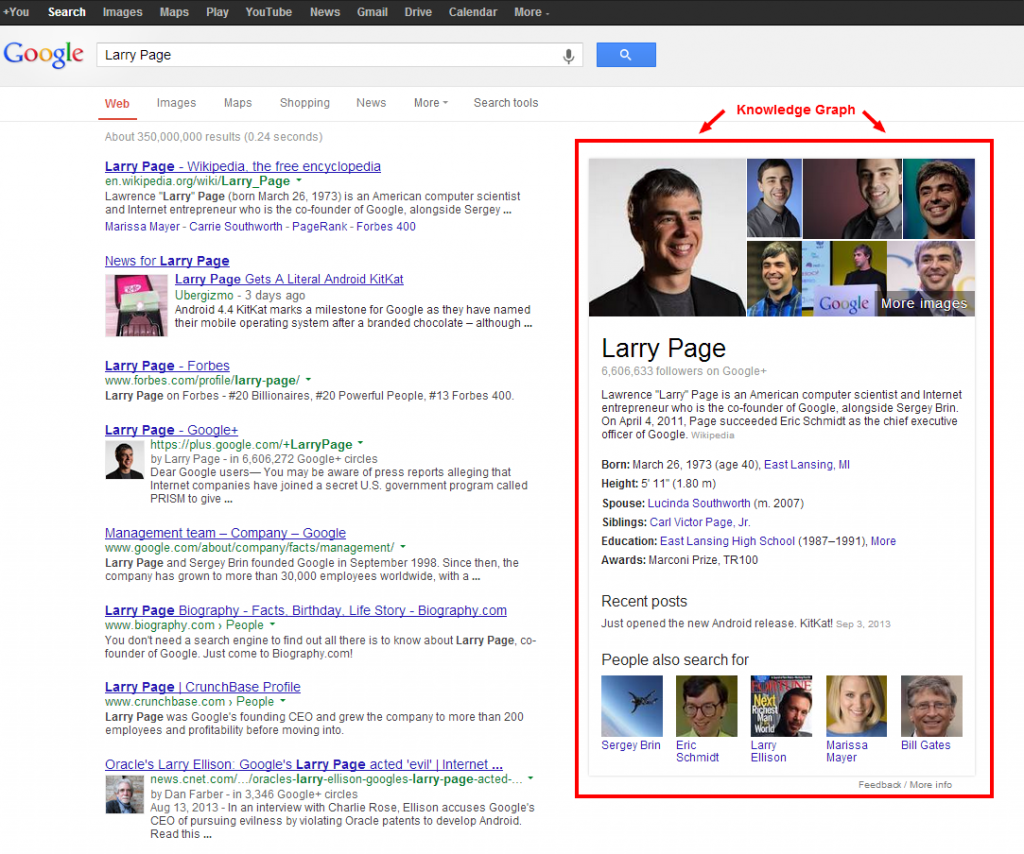Evolution continues to change the face of Google, and ultimately, the future of search. Google’s Knowledge Graph gives us a glimpse of the future with a move towards a more intelligent and intuitive search.
What is Knowledge Graph?
Knowledge Graph is a system integrated within the Google search engine to enhance the relevance of search results by including a range of facts, figures, and data related to the user’s most likely search intent. It aims for a more visually appealing and intuitive presentation of information related to user queries.
The system organizes data into “entities”, which refer to individuals, organizations, places, movies, art works, books, sports teams, etc. Information comes from open and licensed sources like Wikipedia, Freebase, and the CIA World Factbook.
When Knowledge Graph was first launched in May 2012, its knowledge base contained 3.5 billion facts connected to more than 500 million entities. Within a mere six months of its inception, the knowledge base grew to a rate of 10 million entities and 2.14 billion facts per month*. And by December 2012, the knowledge base contained 18 billion facts with over 570 million entities connected to them. With the way the Internet grows each day to accommodate new information and data, experts have yet to pinpoint the figures it could’ve skyrocketed to by now.
How it works
The first thing you’ll notice when using Google search is the data displayed above all other search results after entering your query. For example, if you type “famous rock stars” in your query, a “carousel” will emerge in your result showing names, each with a corresponding image and date of birth and death. It’s called a “knowledge carousel”. This works mostly on general queries because Google is still deploying it gradually.
When you click on an entity in the carousel, or type a more specific query, like “Mick Jagger”, for example, a panel will emerge on the right of your results page. This “knowledge panel” shows photos of Mick Jagger, the first sentence of his Wikipedia page info, a basic rundown of his bio (birth date, height, names of spouses and children, music groups, etc.), and a list of his songs. Clicking on these individual entries would lead you to a corresponding link about the info. If you’re looking for a business establishment for example, when you type the company name in the query, the business address and telephone numbers would show up in the panel, along with a map of the site, and a business logo or photo.
What this means for the future of search
Search engines need to evolve to remain useful and relevant to people, and Google knows this. It’s constantly making changes in the background to its search mechanism, making it better and more user-centered with each update. Google aspires to become a knowledge engine instead of remaining a traditional information search engine, and the Knowledge Graph is the first step towards this goal. According to Johanna Wright, the Product Management Director of Google, “We’re in the early phases of moving from being an information engine to becoming a knowledge engine and these enhancements are one step in that direction.”
As human beings, we know that words hold a variety of meanings depending on the context they’re used. Google shows that with the Knowledge Graph, it’s moving away from a ‘keyword match’ model to a more intelligent method in presenting search results. The “entities” or semantic data that Google can access, allows for a better understanding of user intent. It can pinpoint the contextual meaning of a search query, and interpret the meaning of search queries in the same way humans do. This is good news for us because it means a shorter, more precise search.
As Google continues to refine its search mechanism, the future would likely allow for more flexibility and the ability to present exact answers to more complicated search queries.
* Source: http://www.searchenginepeo ple.com/blog/what-is-google-knowledge-graph.html



